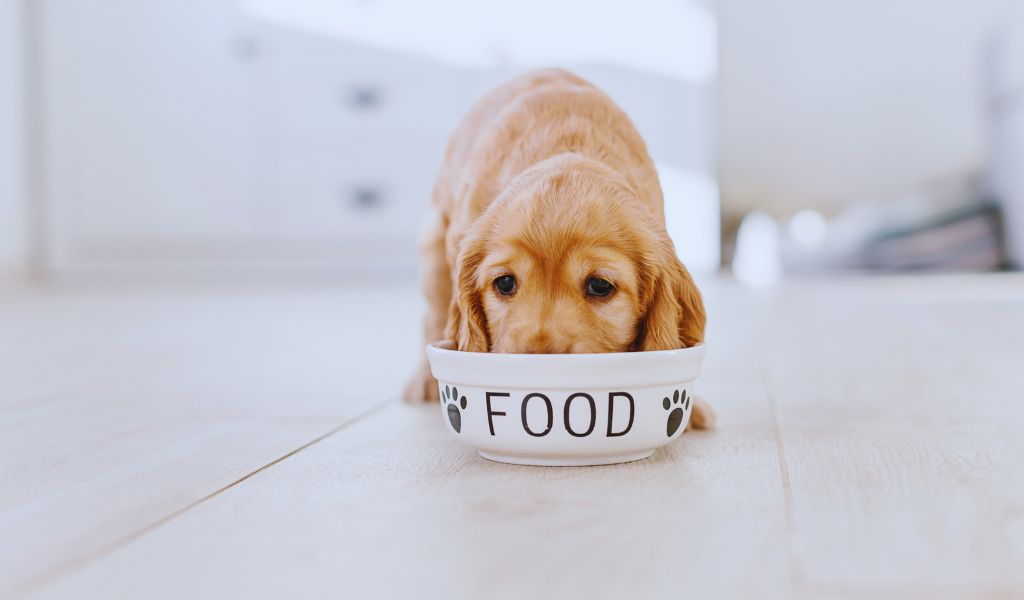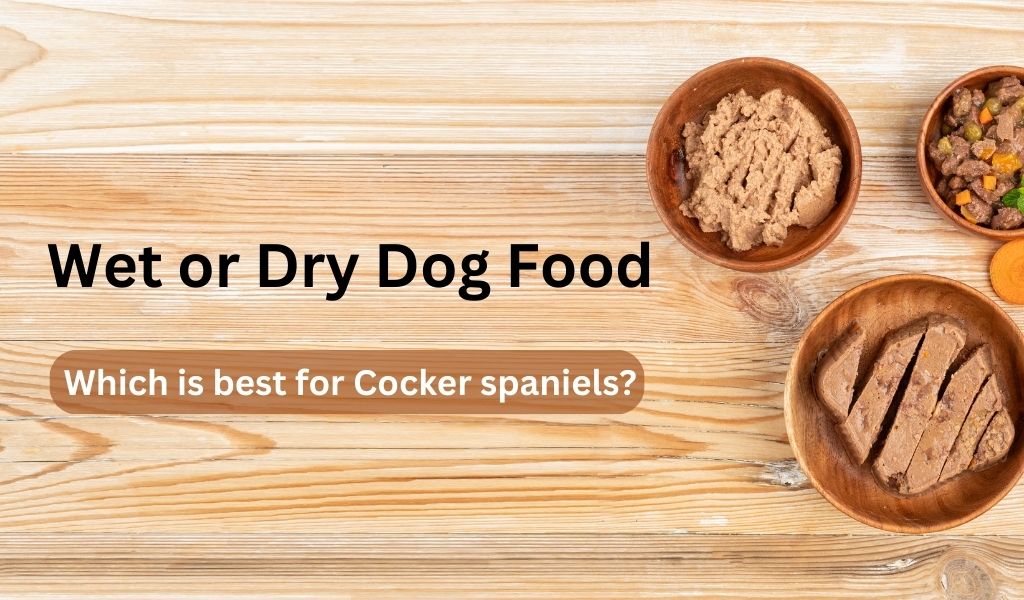There’s no simple answer to whether wet or dry food is better for Cocker Spaniels, as both have their advantages and disadvantages, and the best choice ultimately depends on your individual dog’s needs and preferences.
My personal experience
Over the years I’ve fed my Cocker spaniels a mixture of wet and dry food and they’ve all fared well, enjoying good health and fitness with the energy that you’d expect from the breed.
Each type of food has it’s advantages and disadvantages that you should consider before making a decision on your spaniel’s diet.

Here’s a breakdown:
Dry Food (Kibble):
Pros
- More convenient and affordable: Easier to store and handle, generally less expensive than wet food. Dental benefits: The abrasive texture helps clean teeth and gums, potentially reducing dental problems. Balanced diet: High-quality dry food can provide all the nutrients your dog needs in the correct proportions. Portion control: Easier to measure exact portions to prevent overfeeding.
Cons
Wet Food:
Pros
Cons
Additional factors to consider:
- Your dog’s age and health: Puppies and senior dogs may benefit from the easier digestibility of wet food, while adult dogs can thrive on a dry food diet.
- Your dog’s activity level: Active dogs may burn calories faster and require a higher-calorie diet, which could affect your food choice.
- Your dog’s preferences: Ultimately, your dog’s individual taste and preference should be considered. Observe their reaction to different food types.
The foods that my Cocker spaniels have
My three dogs have a daily meal of raw tripe mixed with dry dog food. In between meals they often get a treat of two.
The raw tripe is from Natures’ Menu which I buy locally. It comes in a box of 12 blocks, frozen, which, when defrosted can be served from the packet.
The dry food that I use is Eukanuba. I’ve fed this food for decades to spaniels and they’ve all done well with it.
It is available for dogs of different ages ( with Puppy, Junior, Mature and Senior options).
I can recommend both the raw tripe and Eukanuba if you’re looking for a food combination for your Cocker.
Ultimately, the best approach is to discuss your dog’s specific needs with your veterinarian and choose a high-quality food, whether wet or dry, that caters to those needs.
You can even consider mixing both types of food to offer variety and address different aspects of your dog’s health.
Remember, the most important factor is providing your Cocker spaniel with a balanced and nutritious diet that promotes optimal health and well-being.




